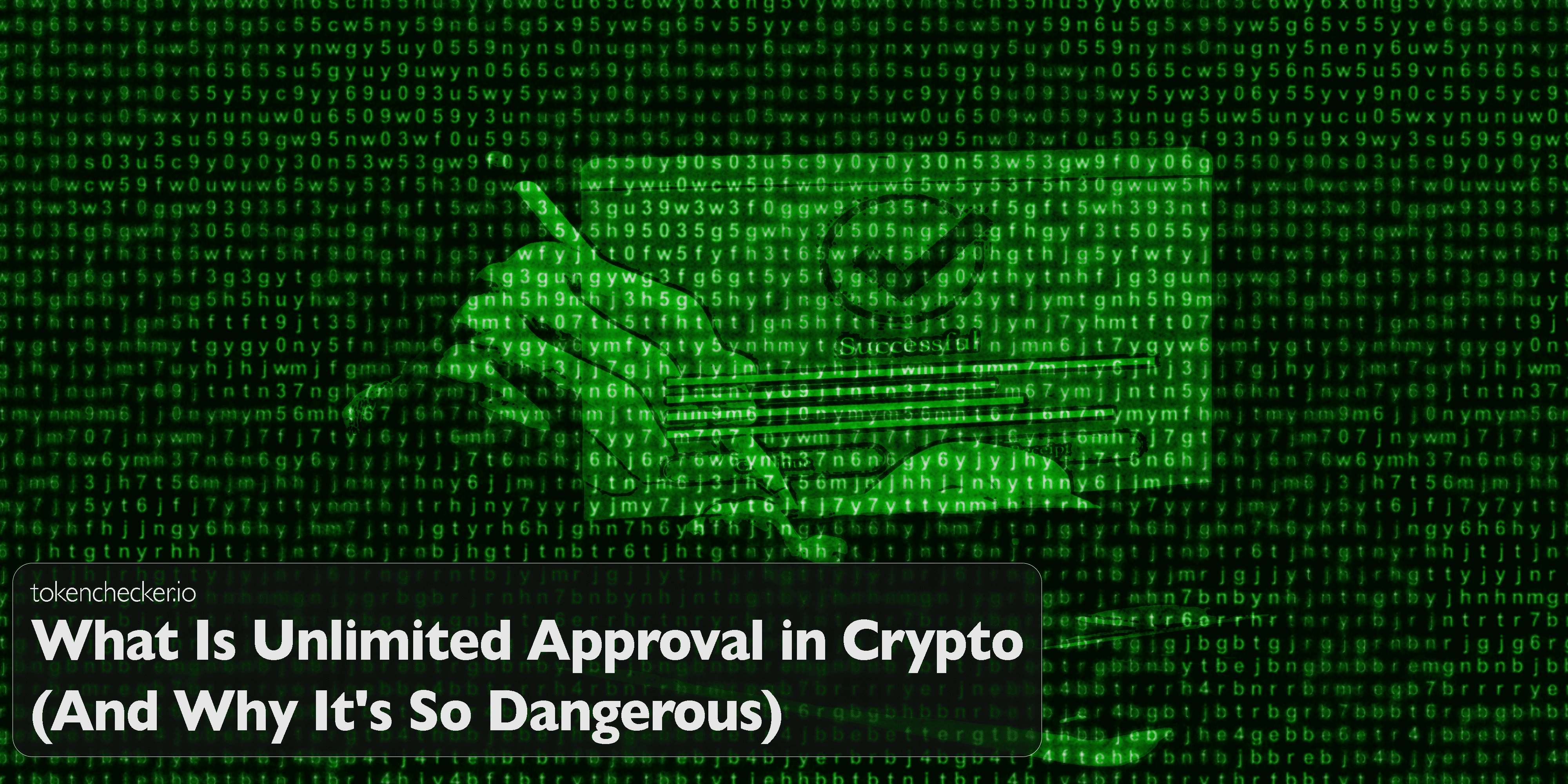
What Is Unlimited Approval in Crypto (And Why It's So Dangerous)
Introduction
In crypto, convenience often comes at a price. One of the most overlooked risks lies in a feature meant to make your life easier unlimited token approval. It sounds helpful. It lets you approve a smart contract once, then forget about it. But that forgetfulness? That’s exactly what scammers and exploiters count on.
This article unpacks what unlimited approval really is, why it’s so commonly used, and how it has quietly become one of the biggest security liabilities in decentralized finance.
What Does Unlimited Approval Actually Mean?
When you interact with a dApp whether to trade, stake, or farm it usually asks you to approve access to your tokens. That approval lets the smart contract spend your tokens on your behalf.
Now, instead of asking you to approve a new transaction each time (which costs gas), many dApps ask for a one-time unlimited approval. Technically, this means setting the limit to the maximum possible number a smart contract can handle: `uint256(-1)`. It's simple. It's efficient. But it’s also permanent unless you revoke it.
Unlimited approval allows that smart contract (or anything that controls it) to take any amount of that token from your wallet, whenever it wants. No further confirmation. No warning.
Why It’s So Common (Despite the Risks)
The appeal is easy to understand: less hassle, lower gas fees, smoother UX. Popular DeFi platforms default to this model because it reduces friction. If you're swapping tokens often, it saves time and money.
But here’s the issue: convenience is a trap. These approvals stay live on-chain even after you disconnect your wallet or stop using the dApp. You could forget they exist entirely. Meanwhile, if the dApp gets compromised or if it was malicious from the start your funds are wide open.
And once those funds are gone, they’re gone. All the hacker needed was the permission you gave them weeks or months ago.
Real-World Examples That Ended Badly
- Radiant Capital hack: Over $50 million drained much of it from users who had previously granted unlimited approvals.
- LI.FI exploit: $10 million lost due to a contract flaw, but only users with unlimited approval were impacted.
- NFT Trader incident: Old approvals left wallets vulnerable to attack even after users stopped using the platform.
Why It’s Worse Than You Think
Let’s break it down:
- Malicious dApps can request unlimited access, then drain you in seconds.
- Forgotten approvals linger for months or years like open doors you didn’t know you left.
- Smart contract bugs or proxy upgrades can bypass your expectations.
- Disconnecting your wallet doesn’t help. The approval is still active on-chain.
And these risks aren’t just theoretical. They're how millions are stolen every year.
How to Protect Yourself
You don’t have to avoid DeFi entirely just use better habits.
- Avoid unlimited approvals when possible. Set custom limits. Some wallets let you approve exact amounts.
- Revoke unused permissions. Use tools like Revoke.cash or Etherscan’s Token Approval Checker. Make it part of your regular security checkup.
- Understand what you’re signing. If the approval transaction says “unlimited,” stop and ask yourself if it’s necessary.
- Look for safer token standards. Newer tools like Permit2 and ERC-2612 allow for gasless, time-limited approvals. These are still emerging, but much safer.
How tokenchecker.io Helps
tokenchecker.io flags tokens that require unlimited approvals. When scanning a contract, it checks:
- Whether approval limits are set to max
- Whether the contract uses known risky approval patterns
- Whether it integrates with exploitable logic or proxy upgrades
It even provides guidance on how to clean up past approvals before they become a liability. Future features will include approval heatmaps and behavior scoring based on real-world abuse cases.
Final Thoughts
Unlimited approval is the silent risk hiding in thousands of wallets. It seems harmless until the moment it isn’t. You don’t need to be paranoid, but you do need to be proactive.
If you’ve ever approved a dApp, go check. Revoke what you no longer use. And next time a platform asks for unlimited access, think twice before clicking confirm.
Because in DeFi, trust is programmable and so are the traps.